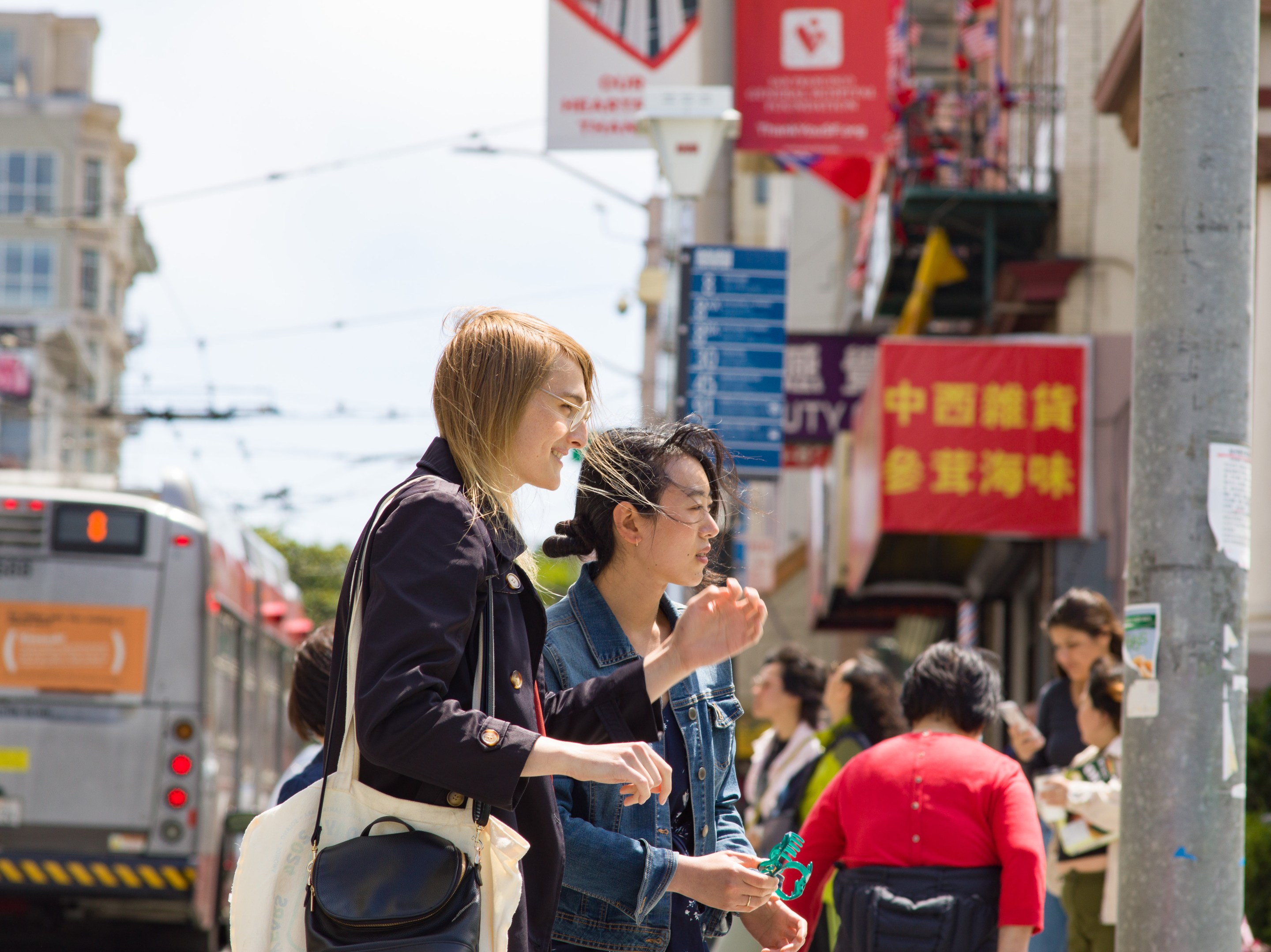As a small business owner and Vice President for our city’s Entertainment Commission*, I vote with the business community in mind. This year, that means asking: How will my choices impact our downtown recovery efforts? How will they impact our neighborhood business districts? And how will they impact the cost of living for all of us, the customers who keep local businesses afloat?
If Prop L passes in November, it will bring in enough revenue to fund more than 10 bus lines. It can also protect the Free Muni For Youth program and reduced fare programs for seniors, people with disabilities, and people with low incomes—all with a small tax on the revenue that ride-hail companies like Uber earn in San Francisco. If you’re surprised to hear that I think taxing businesses can be good for business—just hear me out.
Muni is facing a major budget deficit that could result in service cuts next year and end up slashing over a quarter of service. Transit experts say that cuts could mean increased wait times, reduced service hours, and cancellations of entire lines—which could cut off neighborhoods from jobs, errands, socializing, and more. It’s hard to overstate how devastating this could be for our local economy.
But we don’t have to speculate about the impact of cuts—we’ve seen before how they impact the local economy. For example, when the 33 Ashbury bus was paused during the pandemic, neighborhood businesses felt the impact. Eileen Rinaldi, the founder of Ritual Coffee, says that her business’s locations are well-served by Muni lines that bring in both customers and employees every day. When the bus wasn’t running, business was slower—making it even more difficult for Ritual to make ends meet during the pandemic. That’s why Eileen says that a strong Muni is critical to a strong small business community—and why she’s supporting Prop L to make sure that the buses bringing her customers stay on schedule.
But it’s not just customers who will have trouble reaching small businesses—it’s workers too. That’s why more than 10 labor unions representing firefighters, health care workers, teachers, transit workers, and others are backing Prop L to make sure their members can get to work every day.
Many of the workers at our restaurants, shops, and entertainment venues rely on Muni for their daily commutes. If you’re making minimum wage—a little over $18 per hour—it just doesn’t make sense to spend $18 on an Uber each way, every day. And even for those who could afford to drive or use ride-hail services, driving can actually be a slower option when you take traffic and parking into account.
Joey Luna, the director at Movement San Francisco, a climbing gym at Crissy Field, says he has teammates riding the 30 Stockton to and from the gym every day—a route that got even more convenient last month when they got a new, closer stop. Many of his team members rely on the bus for their daily commutes, which can start as early as 6 a.m. when the gym opens and end as late as 11pm when the gym closes. Luckily, the 30 Stockton runs from 5 a.m. to midnight, matching his business’s long hours. Without Prop L, Joey worries that the buses Movement relies on could be impacted. Even if their bus lines survive, they may not run as many hours a day—and without the 5:40 a.m. bus or the 11:15 p.m., his staff could be left without an affordable, efficient transportation option.
As an Entertainment Commissioner, I work to make sure that venues and events throughout San Francisco can thrive. Our large and even small-and-medium-sized venues simply couldn’t operate without Muni. Oracle Park has a capacity of over 80,000 people, and the Warfield has a capacity of over 2,000 in one of our city’s densest neighborhoods. There isn’t enough space on our streets for that many cars, and not everyone can bike or walk, so transit serves an essential function in bringing us together.
Muni lets people go out on the town and get home safely and affordably without having to drive. It’s indispensable for the customers who work out at our gyms, get their coffee at our cafes, shop at our neighborhood stores, and head to our local theaters. It’s critical for the workers who serve our drinks, stock our stores, and staff our city’s attractions. Making sure workers can get to their shifts and customers can show up—those are some of the most foundational elements of running a successful business. Strong businesses rely on Muni, and right now, Muni relies on passing Prop L this November.
Vote Yes on L: Fund the Bus! Learn more at FundtheBus.com.
(*For identification purposes only)






